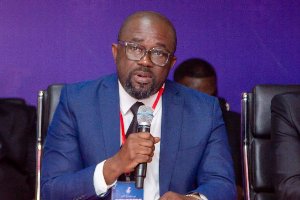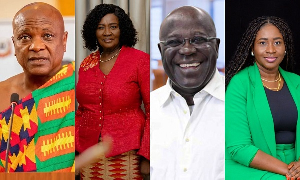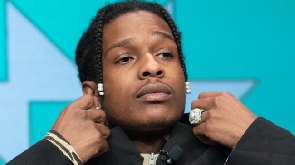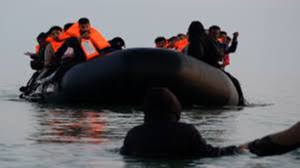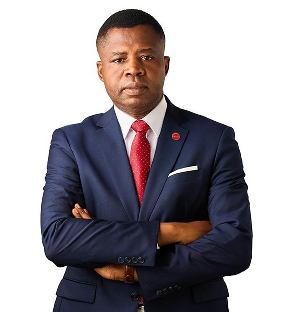There has been a tendency on the part of some professional haters other of Kwame Nkrumah to brand him as a pedophile. And yet, why anyone will go this far to try to tarnish the image of one of humanity’s greatest and visionary statesmen, for lack of verifiable evidence, remains a mystery.
Well, for those who have claimed Nkrumah, 47, was a pedophile because he married Fathia, 26, a mature young woman, here are the facts about the ages of Danquah’s parents when they married and gave birth to him (Danquah):
J. B. Danquah’s father, Yao Boakye, aged 60, married J. B. Danquah’s mother, Lydia Okom Korantemaa, aged 15, and at age 16 gave birth to Kwame Kyeretwie (later J.B. Danquah) on December 21, 1895 (See “Danquah: An Immortal of Ghana, Biographical Sketch, Compiled by Danquah’s Funeral Committee, 1968”). What is this, if not a classic case of a double statutory rape of an underage?
It may also be recalled that J.B. Danquah, while a student in England, had four children, two males and two females, with two different women, neither of whom he married. One of these children became a lawyer and a jazz dancer in England, and visited Ghana some time in 1967. It was however speculated or alleged in some circles that this dancer-cum-lawyer was a homosexual.
As well, J.B. Danquah and Mabel Dove Danquah (1905-1984), his first wife, had a child called Vladimir, a boy who happened to be their only child. Besides, Danquah had other children with other women in Ghana. Probably not surprisingly, this may explain why some writers have suggested that Danquah fathered a large number of children both acknowledged and unacknowledged. Lastly, but not least, if there is one person with a spitting image of Danquah, it is acknowledged, is a daughter she had with a Ningo woman.
At any rate, if in fact, Danquah’s mother, born in 1879, gave birth to him (Danquah) on December 21, 1895 when she was 16, and his father was 61, then this is, beyond any reasonable doubt, a classic case of a DOUBLE STATUTORY RAPE of an underage (15 year-old) girl. This is undeniably the case if we go by the misplaced charge levelled against Nkrumah that he was a pedophile. Then Danquah was also a pedophile. There is a little bit more to this family story—which we briefly explore in the next few paragraphs.
Oddly enough, we could still carry the argument a step further. In mathematical parlance, rounding off the ages at which Mabel (28 to 30) and Danquah (38 to 40) got married to the nearest tenth, granted that the marriage took place in 1933, one then says Mabel and Danquah married at ages that approximated Fathia’s (26 to 30) and Nkrumah’s (40; stays the same). In other words if our calculations are correct, then Fathia (26) and Mabel (28) married their men—Nkrumah (40) and Danquah (38)—at the same age (the reverse is also true)! What does this immediately mean in layman’s terms? It means that the ages at which Mabel and Danquah married on the one hand and on the other hand, the ages at which Fathia and Nkrumah married according to our calculations, are approximately numerically identical.
It also means that if Nkrumah was a pedophile then Danquah was a pedophile too. The reverse equally holds true. Yet those who advance the argument that Nkrumah was a pedophile fail to consider customary-statutory injunctions and permissions as regard time and place, age of consent, developmental psychology, and so on. Even more visibly, these professional haters of Nkrumah fail to see that such arguments do not advance the cause of development economics or hold great promise for changing the plight of the masses. Nor is it our place to deify Nkrumah. And far from what his critics may want their unsuspecting readers and praise singers to believe, it is Nkrumah’s progressive ideas that still hold great promise for Ghana and Africa.
More significantly, it is not as if he [Nkrumah] died and suddenly disappeared with his great ideas, a case we can make for the likes of Cheikh Anta Diop, Marie Curie, Albert Einstein, John Maynard Keynes, Rosalind Franklin, Adam Smith, Nelson Mandela, Karl Marx, W.E.B. Du Bois, Shakespeare, Sir Arthur Lewis, and so on. In fact it is the battle of creative, innovative, or progressive ideas that should supremely define policy matters of interest to issues of national development, security, social justice, building stronger institutions, fairness, and internal cohesion, not infantile intellectual investment in anecdotal fantasies or make unnecessary beelines for uncreative intellection.
Yet this is what the professional haters and detractors of Nkrumah are wont to do. To these ignoble and shallow-minded men and women partisan politics, personal aggrandizement, and political ethnocentrism matter more than the national enterprise and internal cohesions. If it is not about the alleged or unsubstantiated philandering of Nkrumah today, then the political gossip shifts to or it is about an unacknowledged son or daughter of Nkrumah—tomorrow. It is painfully clear from these detractors’ frustration when they tend to see practical answers to Ghana’s and Africa’s developmental challenges in these yellow gossips. In these matters the political or ideological cacophony over Onsy Nathan Kwame Nkrumah’s parentage or paternity, in which Nkrumah is perhaps belatedly or anachronistically forced to take the center stage once again, does not seem to offer much to those professional haters of Nkrumah by way of discrediting his [Nkrumah’s] legacy.
It is there only DNA technology that can resolve this controversy once and for all.
Now, regarding this standing controversy over Onsy’s paternity, Ekow Mensah writes in “CPP’s Headache: Professor Akosa Joins Useless Battle Over Who Nkrumah’s Children May be” (The Insight Newspaper, Aug. 28, 2015), asking under a subtitle “Who Is Onsy Nathan Kwame Nkrumah?”:
“I [Prof. Akosa] first met him [Onsy] in 2009 during the centenary celebration of Osagyefo's birth. He had come to the secretariat to desperately see the Chairman Prof Akilakpa Sawyer on what he could do to help. He introduced himself then as Onsy Anwar Nathan, an Egyptian, Pan-Africanist wanting to be part of the anniversary celebrations. He was unsuccessful but he invited me to support him in a programme organized by him at the Osu Children's home. Even though he had organized a party for the children, I realized that he was more interested in the publicity, the video that was being shot, than the party for the children.
“Months later I started hearing the story that the said Onsy was claiming to be Osagyefo's son. When I next saw him he had created a receding frontal hairline which gave him a broader forehead. Many people have come to accept the receding forehead as likeness of Osagyefo. I know many potential and flag-bearers of the Convention People's Party who had to create a receding frontal hairline to create some semblance to Osagyefo. I confronted him and asked for proof that he was Nkrumah's son. His answer shocked me. He told me but his mother was Egyptian, almost as if Osagyefo went after any Egyptian woman. We all know the story with his wife Fathia, they had not met before the marriage. I asked him then, why it had taken him 37 years after the death of Osagyefo to come claiming he is the man's son…”
This is the point where the Onsy paternity controversy stands—somewhat in situ. It is therefore only the evidential intervention of DNA technology that can bring lasting closure to this festering controversy. Even so, Nkrumah’s professional enemies’ and detractors’ tired tendency of tagging him as a seasoned philanderer—while conveniently skirting Danquah’s proverbial philandering—as if that will somehow succeed in taking popular attention away from or masking the richness of his [Nkrumah’s] legacy will not wash with individuals whose African-centered historical consciousness is intact. This flimsy strategy has no chance of institutional entrenchment.
This may explain why the world primarily recognizes him as one of history’s greatest personalities, “Africa’s Man of the Millennium,” “The Greatest African,” “A Universal Man”…even against the backdrop of his fallibility as all humans certainly are. This is exactly what Amilcar Cabral meant when he wrote: “If President Nkrumah lives on in the history of Africa and the world, it is because the balance of his Positive Action is not only positive, but also shows an epoch-making achievement, fruitful creative activity in the service of the African people and of mankind…‘A hand, however big, can never cover the sky.’” Molefi Kete Asante has also written: “Yet Nkrumah’s influence, as we celebrate him today, continues to grow as it has grown each year…”
The questions is: Why should Nkrumah’s private or romantic affairs preoccupy the intelligence focus of some Western powers, primarily American and Britain, as Dr. Carina Ray shows in her article “The Marriage That Sent The West Into A Panic” (New African Magazine, No. 448), or consume the time and intellectual resources of the professional enemies and detractors of Nkrumah, while ignoring his political virtues and matchless legacy for the African world, for posterity? There is no doubt that the insignificant muffled minority of professional enemies and detractors of Nkrumah are far behind the sweep of time and global wisdom. Nkrumah’s legacy is of the world and therefore lays no claim to provincialism. His legacy took on the majesty of sweeping globality by surprise, leaving behind the unremarkable niche of provincialism for his lesser and little-known colleagues!
Finally, having said all that, we also understand Mabel Danquah was a Marxist—an adherent of Karl Marx or of Marxist philosophy—an ideology she may not necessarily have acquired from Nkrumah’s political influence. Granted, does the nominal connection between Vladimir, her son with Danquah, and Vladimir Lenin, the Russian Marxist, ring a bell? It is more like Danquah’s and Mabel’s marriage being one of a “mixed economy” or democratic socialism than necessarily one of “unbridled capitalism” or socialism/communism. Another question directly arises from the latter question: Why didn’t Danquah, a self-styled capitalist, name his son after Adam Smith or Edmund Burke, one of his [Danquah’s] ideological idols and also one whose economic ideas Smith reportedly claimed to share? Even then we should also ask: Was Father Nkrumah (and Francis Nkrumah’s mother) a capitalist, socialist, or democratic socialist?
Well, we shall leave these questions for readers to ponder and find answers to! In fact readers are free to share their opinions with us.
We shall return...
Opinions of Saturday, 26 September 2015
Columnist: Kwarteng, Francis




